#bilingualism in Ukraine
Explore tagged Tumblr posts
Text
Explainer
Source: Ukraine DAO Updates (Telegram), 5 August 2023. Thanks to Monique Camarra (EuroFile) for the heads-up. Intensified air attacks on the Ukrainian capital following a drone strike on the Kremlin that Russia blamed on Kyiv forced Iryna, Svitlana, and Olya to spend their Ukrainian-language transition class in a cafeteria opposite the National Opera instead of the usual venue nearby, which was…
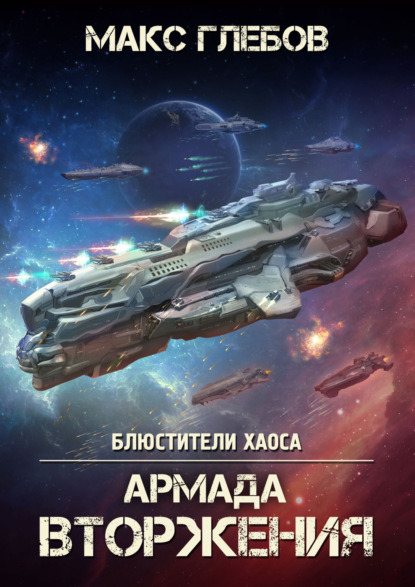
View On WordPress
#bilingualism in Ukraine#LitRes (e-book service)#Max Glebov#Russian invasion of Ukraine#Russian language in Ukraine#Volodymyr Zelensky
0 notes
Text
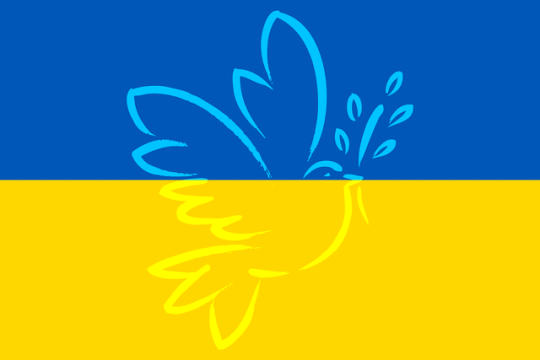
Ukraine Drapeau Paix - Images vectorielles gratuites sur Pixabay - Pixabay
Peace for Ukraine. 💛💙
La paix pour l'Ukraine. 💛💙
#ukraine#peace#ukraine flag#dove#bird#illustration#pixabay#royalty free illustration#peace for ukraine#free ukraine#bilingual
2 notes
·
View notes
Text
In response to this edict from the Trump administration giving every school district only 10 days to respond, one brave district superintendent wrote this. (Name was withheld for obvious reasons..)
Still Not Signing: A Superintendent's Response to the Department of Education's Anti-DEI Ultimatum
The federal government gave us ten days to sign away our values. Here’s our answer.
April 8, 2025
To Whom It May (Unfortunately) Concern at the U.S. Department of Education:
Thank you for your April 3 memorandum, which I read several times — not because it was legally persuasive, but because I kept checking to see if it was satire. Alas, it appears you are serious.
You’ve asked me, as superintendent of a public school district, to sign a "certification" declaring that we are not violating federal civil rights law — by, apparently, acknowledging that civil rights issues still exist. You cite Title VI of the Civil Rights Act, then proceed to argue that offering targeted support to historically marginalized students is somehow discriminatory.
That’s not just legally incoherent — it’s a philosophical Möbius strip of bad faith.
Let me see if I understand your logic:
If we acknowledge racial disparities, that’s racism.
If we help English learners catch up, that’s favoritism.
If we give a disabled child a reading aide, we’re denying someone else the chance to struggle equally.
And if we train teachers to understand bias, we’re indoctrinating them — but if we train them to ignore it, we’re “restoring neutrality”?
How convenient that your sudden concern for “equal treatment” seems to apply only when it’s used to silence conversations about race, identity, or inequality.
Let’s talk about our English learners. Would you like us to stop offering translation services during parent-teacher conferences? Should we cancel bilingual support staff to avoid the appearance of “special treatment”? Or would you prefer we just teach all content in English and hope for the best, since acknowledging linguistic barriers now counts as discrimination?
And while we’re at it — what’s your official stance on IEPs? Because last I checked, individualized education plans intentionally give students with disabilities extra support. Should we start removing accommodations to avoid offending the able-bodied majority? Maybe cancel occupational therapy altogether so no one feels left out?
If a student with a learning disability receives extended time on a test, should we now give everyone extended time, even if they don’t need it? Just to keep the playing field sufficiently flat and unthinking?
Your letter paints equity as a threat. But equity is not the threat. It’s the antidote to decades of failure. Equity is what ensures all students have a fair shot. Equity is what makes it possible for a child with a speech impediment to present at the science fair. It’s what helps the nonverbal kindergartner use an AAC device. It’s what gets the newcomer from Ukraine the ESL support she needs without being left behind.
And let’s not skip past the most insulting part of your directive — the ten-day deadline. A national directive sent to thousands of districts with the subtlety of a ransom note, demanding signatures within a week and a half or else you’ll cut funding that supports... wait for it... low-income students, disabled students, and English learners.
Brilliant. Just brilliant. A moral victory for bullies and bureaucrats everywhere.
So no, we will not be signing your “certification.”
We are not interested in joining your theater of compliance.
We are not interested in gutting equity programs that serve actual children in exchange for your political approval.
We are not interested in abandoning our legal, ethical, and educational responsibilities to satisfy your fear of facts.
We are interested in teaching the truth.
We are interested in honoring our students’ identities.
We are interested in building a school system where no child is invisible, and no teacher is punished for caring too much.
And yes — we are prepared to fight this. In the courts. In the press. In the community. In Congress, if need be.
Because this district will not be remembered as the one that folded under pressure.
We will be remembered as the one that stood its ground — not for politics, but for kids.
Sincerely,
District Superintendent
Still Teaching. Still Caring. Still Not Signing.
34 notes
·
View notes
Text
This series of four videos on Ukraine and the Russia-Ukraine conflict is very interesting. The first is basically just a narrative political history of Ukraine from about 2000 to 2014, talking about different political factions that were relevant in the country in the period, and how different internal and external pressures shaped politics. It's very helpful for understanding the Ukrainian political context, including just how recent and just how shallow the supposed tensions between monolingual Russian and bilingual Ukrainian-Russian speakers was in 2014.
The second video is an overview of the Donbass war from 2014-2022, which you might have been vaguely paying attention to at the time. But it's very helpful to have it all laid out in chronological order with the benefit of hindsight, especially due to the obfuscation of Russian operations at the time that made it hard to work out what, exactly, was going on. It's a combination of a good old 19th century-style filibuster (the military expedition, not the parliamentary maneuver), Fox News-style propaganda, and some (rather badly failed) attempts at astroturfing civil unrest--why Russia thought that would work becomes important in Part 4.
Part 3 is just an extended argument that NATO expansion is not relevant to the 2022 invasion of Ukraine, and while I already agreed with that assessment, it's nice to have it laid out in detail. The very very short version is that by NATO's own public criteria, Ukraine was simply not a candidate to join NATO, and had given up on joining NATO, and that had been painfully obvious since at least the Obama administration. Even more frustratingly, there were multiple points where Russia had an offramp to escalation, where it had gotten everything it could have possibly wanted from the conflict in Donbass, and it refused them all.
Part 4 is the author's attempt to explain why it refused them. The very short explanation is that Russia's government is led by idiots, who are very enamored of a flavor of conspiracy theory that has its origins in the LaRouche movement, and which has been bubbling in both left-wing and right-wing circles since 2000. In this worldview, the US government acting through the CIA (or the British royal family, or George Soros, or Jewish bankers, or whoever your bogeyman of choice is) has an almost supernatural ability to overthrow any government on earth by funding performance art groups (seriously), civil society NGOs, and protestors, and that almost every revolution, actual or so-called, since 1989 has been their direct work, from the post-Soviet revolutions, to Euromaidan, to the Arab Spring.
This belief, in its more overt or fragmentary forms, is incredibly popular, spurred on no doubt by historical instances of CIA malfeasance and actual aggressive wars waged by the Bush administration. But the problem is, it's bunk. During Russia's initial moves against Ukraine in 2014, they tried essentially the same playbook in the Donbass, and of course it failed miserably--you cannot actually astroturf a popular uprising. (The CIA has preferred to stage coups and assassinations, which are a different animal from color revolutions.) The separatists in the Donbass eventually had to be supported by a few thousand Russian troops and direct military aid.
But Putin, driven by his own paranoid misunderstanding of world events, the clique of yes-men he has embedded himself in, and his fear of gay Nazi Jewish CIA agents, simply got Russia in over its head. There is no offramp because Russia cannot articulate what its goals are, and because "stop trying to use George Soros to overthrow the Russian government" is not something the US can agree to, since they are not doing it. The only thing that might have prevented Putin fucking with Ukraine in the first place was maybe if rigging the parliamentary election in 2011 hadn't resulted in protests, in which Putin saw the specter of the hand of the CIA--but of course the US and NATO and the EU had nothing to do with that!
And to cap it all off, since the 2010s the LaRouche movement and its theory of color revolutions has been making inroads in China, so we have that to look forward to in coming decades.
275 notes
·
View notes
Text
Do Europeans (and do Ukrainians) criticize for low foreign language skills?
Today, I found a post of a non-European who complained about how the Spanish criticized foreigners for nor speaking Spanish. It reminds me of posts about how Europeans hate when Americans are not bilingual or are not speaking their mother tongue.
As an Eastern European, specifically, as a Ukrainian, I personally give no sheesh whether you speak Ukrainian or not. However...
First, not all Ukrainians speak English/Spanish/French/German etc.
You cannot simply come here and expect us to speak English fluently. Elder generations speak English badly, my generation (um...actually, I am not gen Z according to our generation theory...I am Y...uummmm...however!) also refuses to speak (but learns), the youngest gen Alpha cannot speak English yet. Why? Because we cannot practice it, we have no extra money to travel all around the world (even before the war, ye know), and as an English language teacher, I have to say the methods of teaching English in Ukraine are...particularly ineffective. Same situations with less spreaded languages.
Second, we want you to speak Ukrainian.
It is a common situation (especially before the war) when a foreigner surely learns French or German but thinks English will be enough in Ukraine. You may say that is because Slavic languages are hard to (at least) speak, but many of you choose russian to learn. Moreover, there are absolutely brainless and somehow pragmatic people (yeah, Chinese, I am speaking about you) thinking it is enough to speak russian in Ukraine, the mother language of Ukrainians does not matter.
We want you to speak Ukrainian. We do not really care how bad you speak. We will surely (try to) understand you and correct if it is necessary. Our language is unique, and we want not only all the Ukrainians to speak it but also foreigners to learn.
btw how did I learn English...? well...I am a philologist of English and Chinese languages, and I have a bachelor degree (yet).
теє-то, кулєги, поширюйте допис, я пітнів і без перекладача писав, як справжній профі!
#foreign languages#foreign students#slavic languages#ukraine#dead goat project#ukrainian#russia is a terrorist state#ukraine news#ukrainian language#language learning#language school#dead goat project ask#dead goat project ua#ua#україна#українською#український тамблер#український блог#український tumblr#укртумбочка#іноземні мови
24 notes
·
View notes
Text



Guess this is a good way to kick off pride month. I had this scene in mind forever, but having the motivation to draw a comic is always very limited with me, and I still wish I had the patience to make the shading less sloppy. Ah well.
Side note: Mihail speaks Romanian, as he spent most of his human-form life there/considers it his mother tongue despite not actually being born there, so that's the language he's using (saying "yes madam" and "Thanks" if my research is correct. I hope so at least).
(He was born I.E 'manifested' in Ukraine, (TLDR: He's a Grimmhound, they aren't born biologically as they are spirit beings) but lived most of his life in Romania. He still has a Slavic accent, that tends to come through when he's super emotional)
I was kind of uncertain how to include him speaking Romanian in a "natural" way, until I remembered that oh yeah, I'm bilingual too (I keep forgetting it because English is so incredibly common to use in everyday life here lol). So, I kinda thought about how I sometimes use English and Finnish together, and based it on that.
The BG stuff uses photos I've taken, specifically the windows.
(Aiden belongs to my friend @mad-hatter-rici)
#artists on tumblr#comic#comic panel#pride month#gay#bi#comic strip#lumi's chaotic creations#lumi's art scribbles#The mage and the mobster#Mihail Caine#Aiden O'Kelley#my oc#friend's oc#first meeting#digital art#romanian#Blackthorne mansion
21 notes
·
View notes
Text
I know bilingualism done fucked me up when i almost tripped walking on the street today and said out loud: "FUCKING HELL" as an automatic response...completely sincerely and unironically I`m Ukrainian you guys....I live in Ukraine...I
#This is what learning english from movies and the internet does to you it fucks you up#bilingual#english language#shitposting#learning languages#foreign languages
8 notes
·
View notes
Text
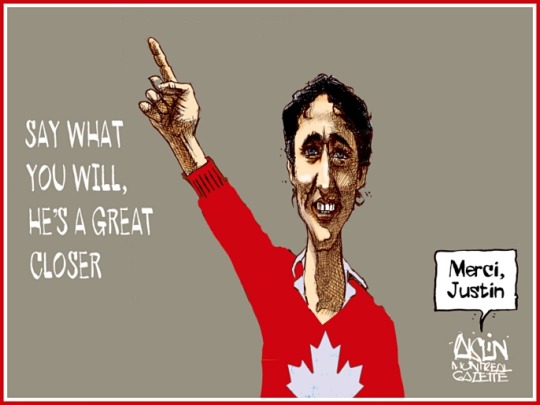
Justin Trudeau has had his ups and downs over the past couple of years. In late 2024 things were looking bleak for his Liberal Party which has to face the voters in 2025.
Then along comes Donald Trump with his imperialistic bombast towards Canada and and Justin suddenly found his footing.
The prime minister announced his resignation which would take effect soon after the election of a new party leader. With his own ambitions off the table, Trudeau was able to concentrate on the threat from the south and promote national unity. As a result, his party has risen from near political oblivion to being reasonably competitive.
On January 5th the Liberal Party of Canada (LPC) was polling at a dismal 20% while the opposition Conservative Party of Canada (CPC), led by the MAGA-Lite Pierre Poilievre, was hitting 45% – enough for a majority government for his party. But as of March 9th, the CPC lwas down to 39% and the LPC had shot up to 33%.
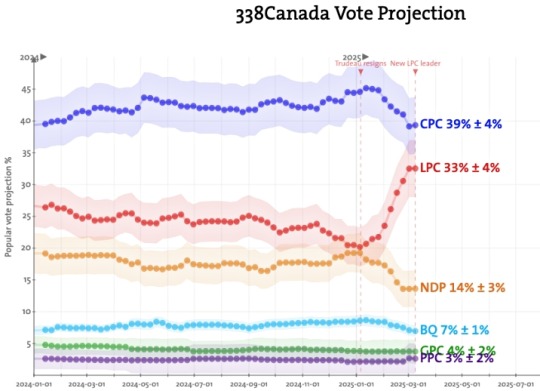
^^^ BTW, the political colors are different in Canada.
Not just Canada, but in other countries having Trump attack you can be good for political leaders.
After the ambush by the Orange One and his henchman J.D. on President Zelenskyy in the Oval Office, the Ukrainian's ratings got a bounce back home.
Zelenskiy's approval rating rises in Ukraine after Trump spat, poll shows
In the UK, Prime Minister Sir Keir Starmer saw his approval rise as one of his opponents became increasingly associated with the unhinged Trump.
Starmer’s approval rating hits six-month high as Trump drags down Farage’s popularity
Even President Emmanuel Macron of France, whose ratings have been in the basement, has seen a boost.
Macron’s Approval Jumps in Poll as French Worry About Ukraine
Back to Canada. 🇨🇦
The Liberal Party chose Mark Carney to succeed Justin Trudeau on Sunday. In a bilingual speech with excerpts in the vid, Carney criticized both Pierre Poilievre and his role model Donald Trump.
youtube
Perhaps Carney's best line from the speech...
Pierre Poilievre's plan will leave us divided and ready to be conquered. Because a person who worships at the altar of Donald Trump will kneel before him, not stand up to him.
#canada#justin trudeau#liberal party#parti libéral#mark carney#pierre poilievre#donald trump#trump imperialism#trump is demented#maga#trump's criticism of foreign leaders#keir starmer#uk#volodymyr zelenskyy#ukraine#володимир зеленський#emmanuel macron#france#polling#approval ratings#trade wars#tariffs#terry mosher#aislin#Youtube
4 notes
·
View notes
Note
Okay so I know you posted the "Mc gets turned into a child" a while ago BUT i loved it so i wanted to talk about it more.
Personally, I grew up bouncing between Russia and Ukraine, and since Mc didn't remember anything past age five, imagine this five year old simply not being able to understand, write, or read English and just sobs in an unknown languege.
CHAOS
Some people in the reblogs and replies on that post have had the same thought. Where either they or their Yuus first language is not English, and thus the horror that little five year old them would not know how to communicate and no one would know what they're saying.
I think in the books it's brought up that there's some spell or something on the school that everyone is speaking their native language, but magic makes ot so they understand each other. But that's not as fun as the chaos. So we're gonna disregard that in this instance.
It would also be funny if Yuu is bilingual, but because they're so little they maybe don't know certain words and no one understands what they're asking, because they substitute the word they don't know in English with the word they do know in their other language. I know I used to do that sometimes as a very little kid. Ive always spoken English, but some things when I was very young I only ever used Spanish words for some things until I was a bit older. One example that I remember, is no one I knew growing up ever used the words hair tie or scrunchie. Everyone I knew said Moño. Everyone knew what that was. I didn't know what they were called English until I was much older. So now I'm picturing little Yuu asking for things like that. "Do you have a moño?" And no one knowing what the hell that means.
25 notes
·
View notes
Text
Holidays 2.7
Holidays
Alfred Adler Day
Ballet Day
Beatles Hit America Day
Blazing Saddles Day
Business Education Day (Russia)
Charles Dickens Day
Colin Kaepernick Appreciation Day
Daniel Boone Escape Day
Dead Sea Scrolls Day
”e” Day
11th Amendment Day (US)
Fire Extinguisher Day (Russia)
Green New Deal Day
Her Turn of Giving Day (South Dakota)
Hug an Addict or Alcoholic Day
International Bluff Day
International Men’s Day (Malta)
International Start a Blog Day
Laura Ingalls Wilder Day
Love Your Robot Day
Lungwort Day (French Republic)
Masseur Day (Ukraine)
National Black Grandmothers Day
National Black HIV/AIDS Awareness Day
National Day of Action Against Media Attacks (Philippines)
National Foreskin Appreciation Day
National Periodic Table Day
National Run-For-Your-Life Day
National Signing Day
Northern Territories Day (Japan)
No Talk Day
PACS1 Awareness Day
Punisher Day
Reverse the Red Day
Send a Card to a Friend Day
Star Wars Podcast Day
Wave All Your Fingers At Your Neighbors Day
The Weekend Day (Canada)
Winter Walk+Roll to School Day
Food & Drink Celebrations
Fettuccine Alfredo Day
Nature Celebrations
Forget-Me-Not Day (Don’t Forget Me; Korean Birth Flowers)
Rose Day
Violet Day
Independence, Flag & Related Days
Grenada (from UK, 1974)
Constitution Day (Tennessee State; 1796)
1st Friday in February
Bilingualism Day (Cameroon) [1st Friday]
Bubble Gum Day [1st Friday]
Comfort Food Friday [Every Friday]
Fast Food Friday [1st Friday of Each Month]
Five For Friday [Every Friday]
Flashback Friday [Every Friday]
Freaky Friday [1st Friday of Each Month]
Friday Finds [Every Friday]
Fry Day (Pastafarian; Fritism) [Every Friday]
Give Kids a Smile Day [1st Friday]
Go Red For Women Day [1st Friday]
National Black Nurses’ Day [1st Friday]
National Wear Red Day (a.k.a. Wear It Beat It) [1st Friday]
NSPCC Number Day (UK) [1st Friday]
Old Socks Day (Italy) [1st Friday]
Pi Mod Appreciation Day [1st Friday]
School Crossing Guard Appreciation Day (Florida) [1st Friday]
Working Naked Day [1st Friday]
Pliny the Younger Day [1st Friday] (Original Date: Moved to March 21 in 2025)
TGIF (Thank God It's Friday) [Every Friday]
Weekly Holidays beginning February 7 (1st Week of February)
Congenital Heart Defect Awareness Day (thru 2.14)
Have a Heart for Chained Dogs Week (thru 2.14)
Hendry County Fair and Livestock Show (Clewiston, Florida) [thru 2.16]
Highlands County Fair (Sebring, Florida) [thru 2.15]
International Week of Black Women in the Arts (thru 2.15)
Love a Mensch Week (thru 2.14)
National Marriage Week (thru 2.14)
Risk Awareness Week (thru 2.14)
Valentine’s Week (thru 2.14)
Festivals Beginning February 7, 2025
AACTA Awards (Gold Coast, Australia)
Athens Wine Weekend (Athens, Georgia) [thru 2.9]
Bonita Springs Seafood & Music Festival (Bonita Springs, Florida) [thru 2.9]
Chiang Mai Flower Festival (Chiang Mai, Thailand) [thru 2.9]
Enumclaw Wine & Chocolate Festival (Enumclaw, Washington) [thru 2.8]
Everglades Seafood Festival (Everglades City, Florida) [thru 2.9]
Fire and Ice Winter Fest (Lava Hot Springs, Idaho) [thru 2.8]
Missouri Organic Conference (Columbia, Missouri) [thru 2.8]
Palanga Smelt Fishing Festival (Palanga, Lithuania) [thru 2.9]
Perth Festival (Perth, Australia) [thru 3.2]
Quebec Winter Carnival (Quebec City, Canada) [thru 2.16]
Saint Martin Carnival (Marigot, Saint Martin) [thru 3.5]
ScotiaCon (Glasgow, Scotland) [thru 2.10]
SocialICE – Rochester's Ice Bar (Rochester, Minnesota) [thru 2.8]
Feast Days
Adaucus (Christian; Saint)
Alfred E. Neuman Day (Church of the SubGenius; Saint)
Ancestor Day I (Pagan)
Augulus, Bishop of London (Christian; Saint)
Charles Dickens (Writerism)
Chrysolius (Christian; Saint)
Colette of Corbie (Christian; Saint)
Day of Selene (Goddess of the Moon; Ancient Greece)
Egidio Maria of Saint Joseph (Christian; Saint)
Eochaid Ollathair (Festival to The Dagda; Celtic Book of Days)
Eugénie Smet (Christian; Blessed)
Everyman’s Day
Favonius (Ancient Roman Festival of Spring Sowing; Starza Pagan Book of Days)
Feast of Mulk (Baha’i)
Ictinus (Positivist; Saint)
Just Another Day Day (a.k.a. No-Day Day; Pastafarian)
Li Chum (Spring Fertility Festival; China; Everyday Wicca)
Luigi the Ice Cream Wolf (Muppetism)
Luke the Younger (Christian; Saint)
Mel (Christian; Saint) [Ireland]
Moses, bishop (Christian; Saint)
Pius IX, Pope (Christian; Blessed)
Richard the Pilgrim (a.k.a. Richard, King of the West Saxons; Christian; Saint)
Romualdo, founder of the Order of Camaldoli (Christian; Saint)
Silvin (Christian; Saint)
Theodore of Heraclea (Christian; Martyr)
Theodorus (a.k.a. Stratilates; Christian; Saint)
Tresain of Ireland (Christian; Saint)
Lunar Calendar Holidays
Chinese: Month 1 (Wu-Yin), Day 10 (Ding-Wei)
Day Pillar: Fire Sheep
12-Day Officers/12 Gods: Initiate Day (执 Zhi) [Auspicious]
Holidays: Tian Gong Day (Taiwan)
Secular Saints Days
Alfred Adler (Science)
Eubie Blake (Music)
Charles Dickens (Literature)
Frederick Douglass (Politics)
Russell Drysdale (Art)
Joe English (Music)
Karen Joy Fowler (Literature)
Margaret Fownes-Luttrell (Art)
Wilhelm Freddie (Art)
Henry Fuseli (Art)
Bill Hoest (Art)
Eddie Izzard (Entertainment)
Sinclair Lewis (Literature)
Andrew Micallef (Art)
Sam J. Miller (Literature)
Thomas More (Politics)
Paul Nizan (Philosophy)
Pete Postlethwaite (Entertainment)
Chris Rock (Entertainment)
James Spader (Entertainment)
Gay Talese (Literature)
Laura Ingalls Wilder (Literature)
Lucky & Unlucky Days
Perilous Day (13th Century England) [9 of 32]
Sakimake (先負 Japan) [Bad luck in the morning, good luck in the afternoon.]
Umu Limnu (Evil Day; Babylonian Calendar; 6 of 60)
Unfortunate Day (Pagan) [9 of 57]
Premieres
Adrift in the Mist or Fog Groggy (Rocky & Bullwinkle Cartoon, S1, Ep. 22; 1960)
Alice at the Carnival (Alice Disney Cartoon; 1927)
The Bashful Buzzard (Blue Ribbon Hit Parade Cartoon; 1953)
Birds of Prey (Film; 2020)
Blazing Saddles (Film; 1974)
Bored of the Rings, by Henry Beard and Douglas Kenney (Parody; 1969)
Breathless (Film; 1961)
Bridge Over Troubled Water, by Simon & Garfunkel (Song; 1970)
Cat Alarm (Mighty Mouse Cartoon; 1961)
A Clean Shaven Man (Fleischer Popeye Cartoon; 1936)
The Color Purple (Film; 1986)
Come and Get It, by Badfinger (Song; 1970)
Crawdaddy (Musić Magazine; 1966) [1st Rock Mag]
Der Schauspieldirektor (The Impresario), by Wolfgang Amadeus Mozart (Comic Singspiel; 1786)
The Deserter (Ballet; 1827) [1st Ballet Performance in US]
The Earl and the Squirrel or The March of Crime (Rocky & Bullwinkle Cartoon, S1, Ep. 21; 1960)
Elvis and Me (TV Mini-Series; 1981)
A Feather in His Hare (WB LT Cartoon; 1948)
Felix in Blunderland (Felix the Cat Cartoon; 1926)
Felix the Cat in “The Goose That Laid the Golden Egg” (Van Beuren Rainbow Parade Cartoon; 1936)
Fowl Brawl (Columbia Favorites Cartoon; 1957)
The Fox Hunt (Heckle & Heckle Cartoon; 1950)
Hannah and Her Sisters (Film; 1986)
Home Town Olympics, featuring Farmer Al Falfa (Terrytoons Cartoon; 1936)
How the Giraffe Got His Long Neck (Unnatural History Bray Cartoon; 1926)
How to Lose a Guy in 10 Days (Film; 2003)
The Incredible, Indelible, Magical, Physical Mystery Trip (DePatie-Freleng Animated TV Special;; 1973)
I Want to Eat Your Pancreas (Anime Film; 2019)
I Yabba-Dabba Do! (Hanna-Barbera Animated TV Special; 1993)
Justice League Dark (WB Animated Film; 2017)
Kid Auto Races at Venice (Short Film; 1914) [1st Chaplin ‘Tramp’ character]
Lady Jane (Film; 1986)
Legion of Super-Heroes (WB Animated Film; 2023)
The Lego Movie (Animated Film; 2014)
Letterkenny (TV Series; 2016)
The Little Theatre (Scrappy Phantasies Cartoon; 1941)
Locke & Key (TV Series; 2020)
London Derriere (The Inspector Cartoon; 1968)
The Magic Mummy (Tom & Jerry Van Beuren Cartoon; 1933)
Man Hunt (Oswald the Lucky Rabbit Cartoon; 1938)
Manufacturing Consent, by Noam Chomsky and Edward S. Herman (Book; 1988)
The Medicine Show (Krazy Kat Cartoon; 1933)
Mickey’s Birthday Party (Mickey Mouse Disney Cartoon; 1940)
Mississippi Swing (Terrytoons Cartoon; 1941)
The Monuments Men (Film; 2014)
Norse Mythology, by Neil Gaiman (Stories; 2017)
Nowhere Man, by The Beatles (Song; 1966)
The Old Roue Visualizes (Gaumont Cartoon Comics Cartoon; 1917)
Orpheus in the Underworld (4-Act Version), by Jacques Offenbach (Opera; 1874)
Parcel Post Pete’s Nightmare (Hearst-Vitagraph News Pictorial Cartoon; 1916)
Pinball Wizard, recorded by The Who (Song; 1969)
Pinocchio (Animated Disney Film; 1940)
Please Please Me, by The Beatles (Song; 1963)
Quiet! Pleez (Fleischer Popeye Cartoon; 1941)
Satellite Sam (WB Cartoon; 2002)
Sheep Wrecked (Droopy MGM Cartoon; 1958)
The Singing Saps (Aesop’s Sound Fable Cartoon; 1930)
Small Is Beautiful: Economics as if People Mattered, by Ernst F. Schumacher (Philosophy Book; 1973)
The Spider Talks (Terrytoons Cartoon; 1932)
The Story Brought It (Unnatural History Bray Cartoon; 1926)
Tales of Ordinary Madness, by Charles Bukowski (Short Stories; 1983)
Taxi Driver (Film; 1976)
Teacher’s Pet (Betty Boop Cartoon; 1931)
Train To Pakistan, by Khushwant Singh (Novel; 1956)
Troilus and Cressida, by William Shakespeare (Play; 1603)
Unsure Runts (Columbia Favorites Cartoon; 1955)
The Wall, by Pink Floyd (Live Concert Spectacular; 1980)
The Wind Jammers (Aesop’s Film Fable; 1926)
Today’s Name Days
Ava, Richard (Austria)
Držislav, Julijana, Maksim, Rikard (Croatia)
Veronika (Czech Republic)
Richard (Denmark)
Richard, Riho, Riko, Riku (Estonia)
Rikhard, Riku (Finland)
Eugénie (France)
Ava, Richard, Ronan (Germany)
Parthenios, Parthenis (Greece)
Rómeó, Tódor (Hungary)
Eugenia, Teodoro (Italy)
Daunis, Nelda, Richards, Rihards (Latvia)
Jomantė, Ričardas, Romualdas, Vildaugas (Lithuania)
Riborg, Rigmor, Rikard (Norway)
Romuald, Ryszard, Sulisław (Poland)
Partenie (Romania)
Vanda (Slovakia)
Ricardo (Spain)
Dick, Rikard (Sweden)
Teofil, Teofila (Ukraine)
Beau, Beaumont, Beverly, Bo, Boe, Jace, Jacey, Sinclair (USA)
Today’s National Name Days
National Jack Day
Today is Also…
Day of Year: Day 38 of 2025; 327 days remaining in the year
ISO Week: Day 5 of Week 6 of 2025
Celtic Tree Calendar: Luis (Rowan) [Day 18 of 28]
Chinese: Month 1 (Wu-Yin), Day 10 (Ding-Wei)
Chinese Year of the: Snake 4723 (until February 17, 2026) [Ding-Chou]
Coptic: 30 Tubah 1741
Druid Tree Calendar: Poplar (Feb 4-8) [Day 4 of 5]
Hebrew: 9 Shevat 5785
Islamic: 8 Sha’ban 1446
Julian: 25 January 2025
Moon: 75%: Waxing Gibbous
Positivist: 10 Homer (2nd Month) [Ictinus)
Runic Half Month: Sigel (Sun) [Day 2 of 15]
Season: Winter (Day 49 of 90)
SUn Calendar: 8 Gray; Oneday [8 of 30]
Week: 1st Week of February
Zodiac:
Tropical (Typical) Zodiac: Aquarius (Day 19 of 30)
Sidereal Zodiac: Capricorn (Day 24 of 29)
Schmidt Zodiac: Capricorn (Day 13 of 27)
IAU Boundaries (Current) Zodiac: Capricorn (Day 19 of 28)
IAU Boundaries (1977) Zodiac: Capricornus (Day 20 of 28)
2 notes
·
View notes
Text
Everything Belongs to the Cosmos is an installation of painted works by Los Angeles and Berlin-based painter Alexandra Grant based on texts by Polish writers Anna Adamowicz, Krystyna Dąbrowska, Julia Fiedorczuk, Bianka Rolando, Olga Tokarczuk, and Urszula Zajączkowska. Begun in 2021, the work is designed to create a chapel for reflection and space for hope, following in the rich tradition of contemplative chapel spaces created by artists as diverse as Henri Matisse, Mark Rothko, Ilise Greenstein and Theaster Gates. The six participating poets were chosen and commissioned in 2021 and early 2022 with the assistance of Marcin Orliński and the contributed work was translated from Polish into English by Antonia-Lloyd Jones.
The curiosity that drives Grant’s career is in literary texts and making them visual. Since 2014, her work has revolved around Sophocles’ myth of Antigone, interpreting her utterance “I was born to love not to hate.” She has painted Antigone’s voice with drawn lines (to represent the rule of law) and bright pours of paint (which capture the chaos of life). In Neunte Universum (Ninth Universe), 2020, painted and exhibited in Berlin in 2021 at carlier | gebauer gallery, her Antigone series expanded to include the universe itself. This painting was technically and culturally a springboard for Everything Belongs to the Cosmos.
The Polish writers featured in Grant’s painted Cosmos span generations and levels of recognition, with Tokarczuk the winner of the 2019 Nobel Prize in Literature and are meant to highlight the current writing scene in Poland as each interprets an aspect of the cosmos. Taking each writer’s text as a cue, Grant created one large-scale painting based on each text in English, each on paper and at a scale of 3.9 meter tall and 3 meter wide or larger, the largest works she has ever created. The installation of the six paintings is meant to create a chapel space – and quite literally a cosmos – for and of women’s voices.
Engaging the community of Polish writers during the pandemic, the Ukraine war and refugee crisis, as well as the changing political circumstances for women in Poland has allowed for cross-cultural exchange and opens a conversation around the purpose of and hope that writing, art-making, reflection and community can bring. By commissioning the writers and having their work translated to English by Antonia Lloyd-Jones, Grant’s aim is “to further translate their words into the visible and visual.”
The title of the exhibition captures both a sense of wonder and a surrender to reality and circumstances, which allows for a transcendence of material conditions. Everything Belongs to the Cosmos is a safe haven: a place for reflection and hope, both part of and apart from the chaos of the world.
Grant’s interest in Polish literature began over 20 years ago, when she first read Wislawa Szymborska’s work and embarked on representing the poem “Possibilities” as a drawing without paper, made out of wire, in 2001. These sculptures and works stemming from them are now the subject of a solo show at the Adam Mickiewicz Museum of Literature in Warsaw, Poland, Alexandra Grant. Word. Image. Space, a survey of her work that presents a long-term interest in Polish literature and experimental writing, focusing on works inspired by Szymborska and Michael Joyce.
A public conversation led by Lloyd Jones and Marcin Orliński, featuring Adamowicz, Dąbrowska, Fiedorczuk, Rolando, and Zajączkowska, will take place on Saturday, 23 November 2024, at 4 pm.
A bilingual catalog of Everything Belongs to the Cosmos will be released in January 2025. The book will include an essay by Marcin Orliński, as well as the texts by the six Polish writers.
The large-scale paper for the project was provided by Hahnemühle paper.
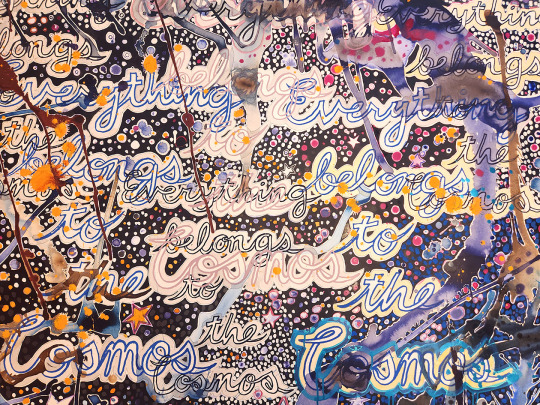
5 notes
·
View notes
Text

Ukraine Drapeau Paix - Images vectorielles gratuites sur Pixabay - Pixabay
Peace for Ukraine 💛💙.
La paix pour l'Ukraine. 💛💙
#ukraine#flowers#peace sign#peace#ukraine flag#peace for ukraine#pixabay#royalty free illustration#free ukraine#bilingual
2 notes
·
View notes
Text
Hashtag museum haul
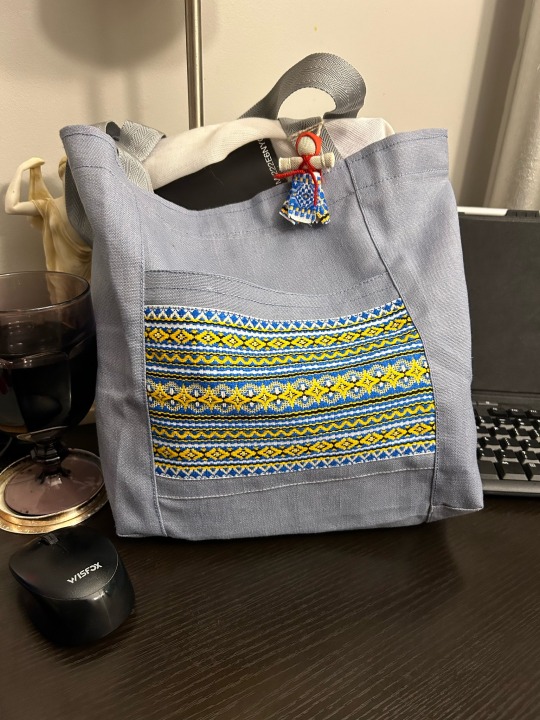
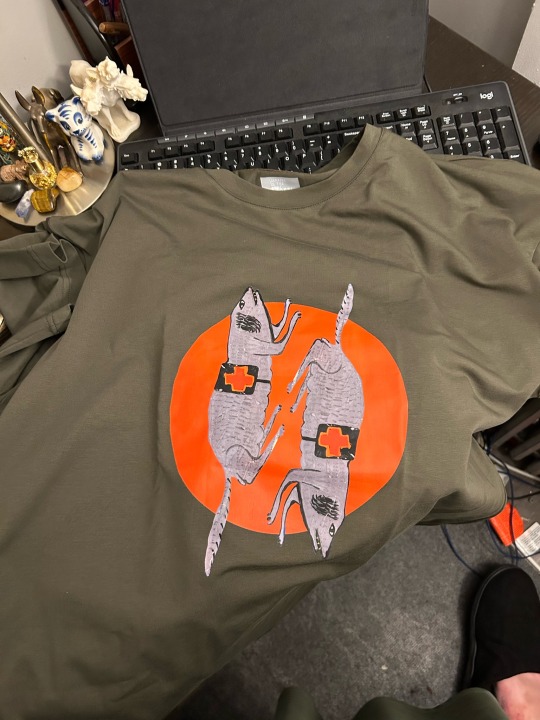
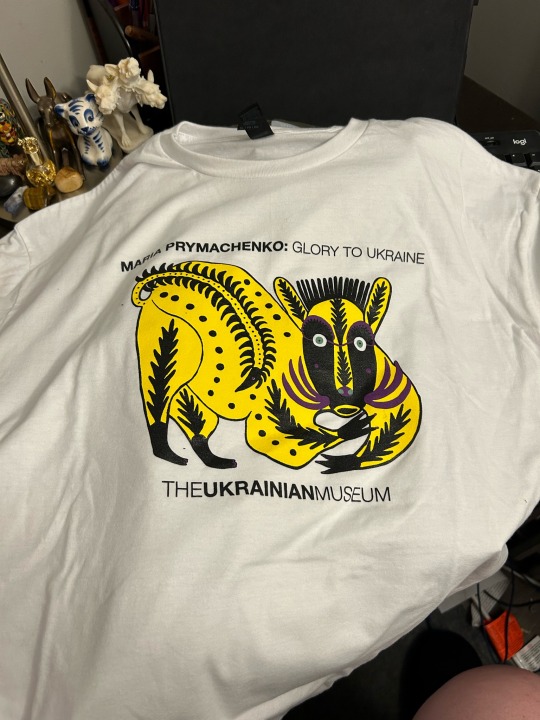
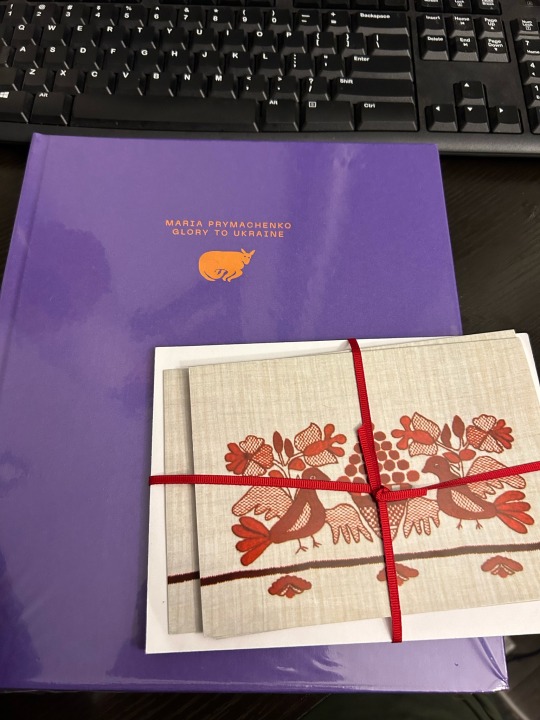
The canvas tote bag is handmade by artisans from the Bakhmut Creative Workshop, and has a little motanka, an ancient Ukrainian family talismans and a symbol of prosperity, goodness, and hope, per the museum information. (There are a lot more in other colors available through the museum website if you were interested and they help support the craftspeople and artisans from Bakhmut, who have been displaced and scattered throughout Ukraine and elsewhere due to the Russian destruction of their homes.)
The exhibit catalogue is bilingual and has something like 120 works by Prymachenko featured. The two shirts are exclusives from what I can tell. The cards are one of many sets the museum shop had available and now I’ve partially restocked my holiday and thank you stationary.
Oh, and this magnet!
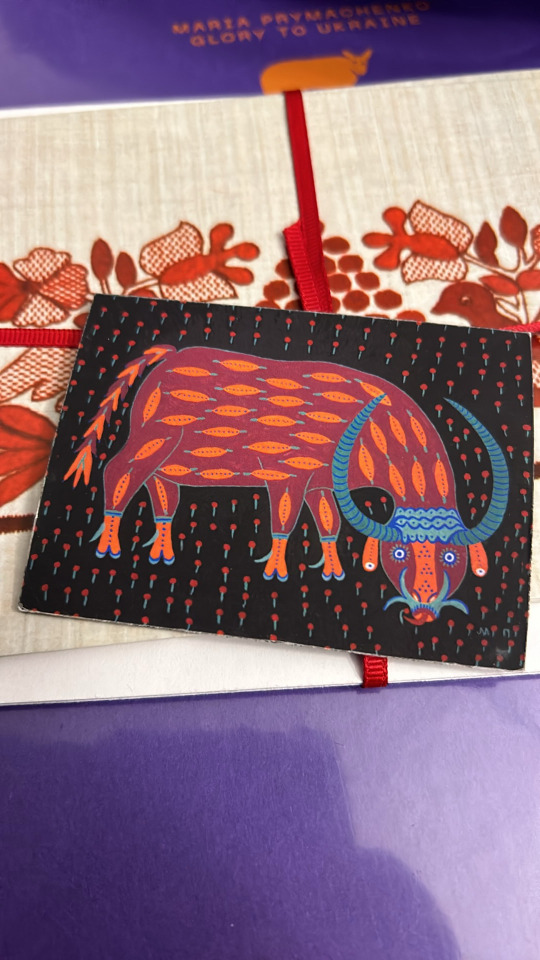
13 notes
·
View notes
Text
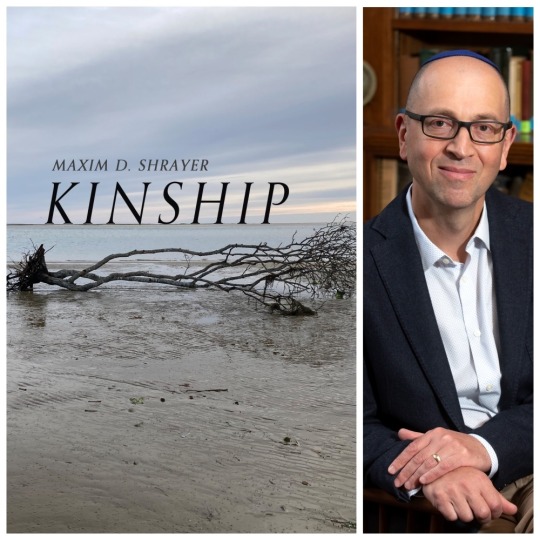
FLP POETRY BOOK OF THE DAY: Kinship by Maxim D. Shrayer
On SALE now! Pre-order Price Guarantee: https://www.finishinglinepress.com/product/kinship-by-maxim-d-shrayer/
Maxim D. Shrayer, bilingual author, scholar, and translator, was born in Moscow in 1967 to a Jewish-Russian family and immigrated to the United States in 1987. A professor at Boston College, Shrayer has authored and edited more than twenty-five books. His recent poetry collections include the Russian-language Stikhi iz aipada (Poems from the iPad, Tel Aviv, 2022) and the English-language Of Politics and Pandemics (Boston, 2020). Among Shrayer’s other books are the literary memoirs Waiting for America, Leaving Russia, and Immigrant Baggage. He is the recipient of a 2007 National Jewish Book Award and a 2012 Guggenheim Fellowship. He lives in Massachusetts with his wife, Dr. Karen E. Lasser, their daughters, Mira Isabella and Tatiana Rebecca, and their silver Jewdle, Stella. #Jewish #Russian #Soviet #poetry #book #history
PRAISE FOR Kinship by Maxim D. Shrayer
“Maxim D. Shrayer‘s new collection radiates the sad airy warmth of a home lost but never forgotten. There is a gentle, inviting glow to the poems, though the light they shed often lands on tragedy. With Kinship, Shrayer has expanded his place in the pantheon of émigré lyricists.”
–Boris Dralyuk, author of My Hollywood, poems and translator of Isaac Babel’s Odessa Stories.
“In Kinship the poet Maxim D. Shrayer takes on our troubled times—including COVID-19, January 6th, the Russian invasion of Ukraine—as well as troubled past times, gracing these events with his honesty, sorrow, and multi-cultural perspective. Born in Moscow to a Jewish-Russian family, then immigrating to America, Shrayer comes to these moments with sensitivity and a unique eye. He sees bats at sunset as “ugly, soft, and fast/ like old snapshots of the Soviet past,” and understands, even lives, “how time can history backward.” One is wiser for reading these poems, and richer for their beautiful language.”
–Elizabeth Poliner, author of What You Know in Your Hands, poems and As Close to Us as Breathing, a novel
Please share/please repost #flpauthor #preorder #AwesomeCoverArt #poetry #read #poetrybook #poems
#poetry#flp authors#preorder#flp#poets on tumblr#american poets#chapbook#chapbooks#finishing line press#small press
2 notes
·
View notes
Text
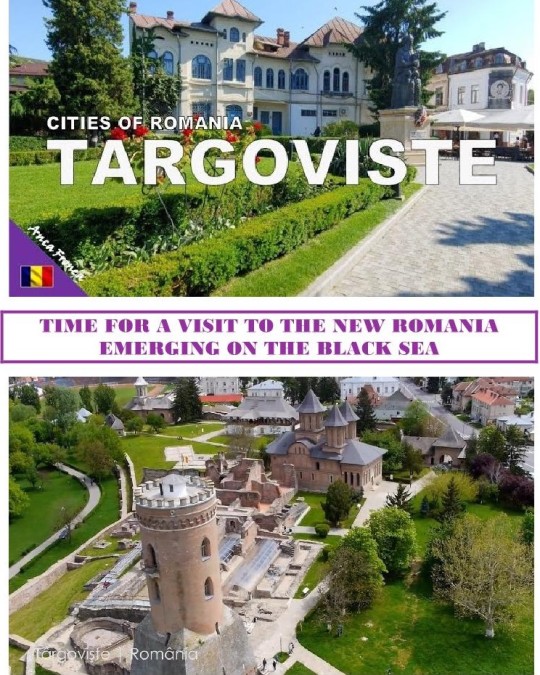
TARGOVISTE – NOVEMBER 21-22 & 27-28 – MCDSARE 2023 – ROMANIA
An article published in Psychology Research, David Publishing Company, 3 Germay Dr., Unit 4 #4651, Wilmington DE 19804, USA, https://www.davidpublisher.com/, “300,000 (at Least) Years for Homo Sapiens to Develop Writing: A Review of Silvia Ferrara’s The Greatest Invention, Tr. Todd Portnowitz.“ Then my presentation on Monday, November, 20, 2023 on DISJUNCTURE vs REVOLUTION, POSTGRESSION vs. PROGRESSION, in Romania within the 8th MCDSARE Conference (November 20-28, 2023). The central question of the emergence of language and the passage from oral language to writing will be fundamental. All Information at IFIASA MCDSARE 2023 conference, Boerescu Zaharia, Târgoviște, Dâmbovița, Romania https://www.ifiasa.com/mcdsare-event

First, a video presentation covering the newly discovered Hominin Homo Naledi in South Africa, on the IFIASA site, presents this Hominin who had reached the level of transcribing his oral language into symbolical geometric signs around 300,000 BCE. Compare with Neanderthals who did the same in Gibraltar around 100,000 BCE, and with Homo Sapiens who did it in his European and Indonesian caves around 45,000 BCE. Who is the bad pupil? Who is precocious?
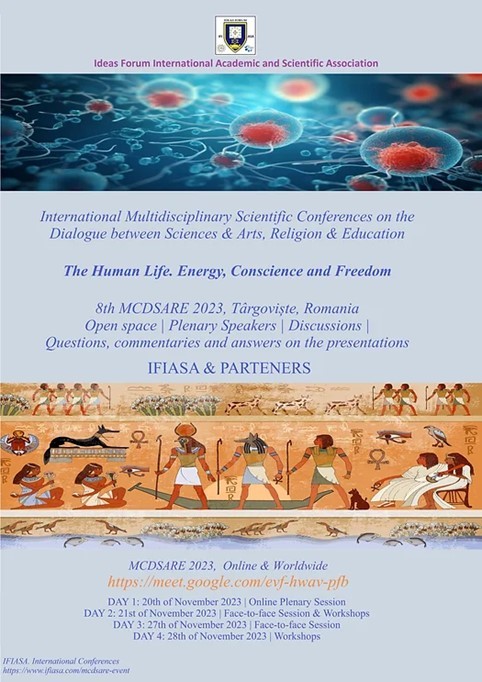
Second, the phylogeny of language from the emergence of oral articulated language to the writing of all languages. Writing is the transfer from oral language to visual engravings or symbols. This will bring up the question of freedom and freedom of choice in archaeological times for Hominins. Did they choose to use their genetic means to develop articulated language, or did they just do it without even thinking about it? Same question about transcribing their oral language into some visual marks, engravings or painted symbols for writing?

The third part on the Versailles Treaty and how it still dictates the present and future of the world will be kept for publication, soon, I hope. It deals with the ferocious consequences of this treaty. Hitler and the second world war. The Holocaust and the creation of Israel, and the impossibility for this state to come to a balanced cooperation with and recognition of the Palestinians. The constant changing camps of Ukraine all along. From 1918 to the early 1920s hostile to the USSR. The vast cooperation with Hitler and the Holocaust under the occupation by Nazi forces. The submissive cooperation with Stalin and the other leaders of the Soviet Union up to 1989. Their independence and the impossibility to live as a bilingual country with two languages, two separate branches of the Orthodox religion, the deep divide between heavy industry and other activities, etc.
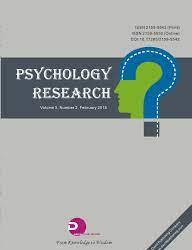
All Information at IFIASA MCDSARE 2023 conference, Boerescu Zaharia, Târgoviște, Dâmbovița, Romania https://www.ifiasa.com/mcdsare-event
Éditions La Dondaine, Medium.com, 2023
2 notes
·
View notes
Photo
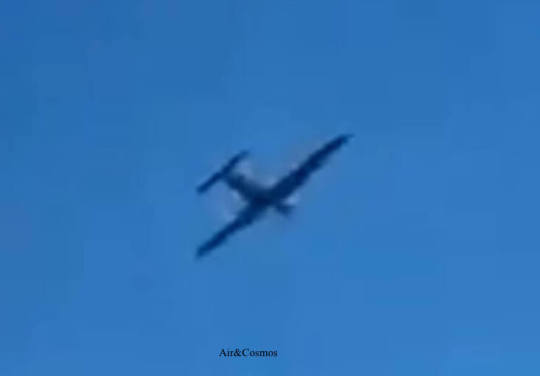
l’heure du Titien … « C’était encore l’heure vespérale que, dans un de ses livres, il avait appelée l’heure du Titien, parce que toutes les choses y resplendissent finalement d’un or très riche, (…), et illuminent le ciel plutôt qu’elles n’en reçoivent la lumière. » — (Gabriele D'Annunzio, Le Feu, 1900)
Cette nuit, j’ai rêvé que des drones ukrainiens survolaient Moscou et larguaient dans le ciel vespéral des tracts à destination de ses habitants. Au réveil, je pensai à l’écrivain italien Gabriele D’Annunzio (1863-1938) qui effectua « le 9 août 1918, à la tête de la 87e escadrille de chasse, (…) un vol de plus de mille kilomètres avec son compagnon de vol Aldo Finzi pour larguer au-dessus de Vienne des tracts bilingues rédigés par l'écrivain Ugo Ojetti incitant les Autrichiens à demander l’armistice ». (source: Wikipédia)
Je reprends ici le texte de ce tract de propagande dans lequel j’ai opéré quelques changements: ainsi les Viennois sont-ils devenus des Moscovites, les Italiens des Ukrainiens et les Prussiens des Russes. Quant au drapeau, la transmutation lui aura fait perdre une couleur…
« Moscovites !
Apprenez à connaître les Ukrainiens. Nous volons au-dessus de Moscou, nous pourrions larguer des tonnes de bombes. Nous ne vous lançons qu'un salut bicolore : les deux couleurs de la liberté. Nous autres Ukrainiens ne faisons pas la guerre aux enfants, aux vieillards et aux femmes. Nous faisons la guerre à votre gouvernement, ennemi de la liberté des nations, à votre gouvernement aveugle, obstiné et cruel, qui ne parvient à vous donner ni la paix, ni le pain, et vous nourrit de haine et d'illusions. Moscovites ! Vous êtes réputés intelligents. Mais pourquoi donc avez-vous revêtu l'uniforme russe ? Vous le voyez, désormais tout le monde est contre vous. Vous voulez continuer la guerre ? Continuez-la, c'est votre suicide. Qu'en attendez-vous ? La victoire décisive que promettent les généraux prussiens ? Leur victoire décisive, c'est comme le pain en Ukraine : on meurt en l'attendant. »
« L'Histoire ne se répète pas, elle bégaie », même dans les rêves à ce qu’il paraît...
4 notes
·
View notes